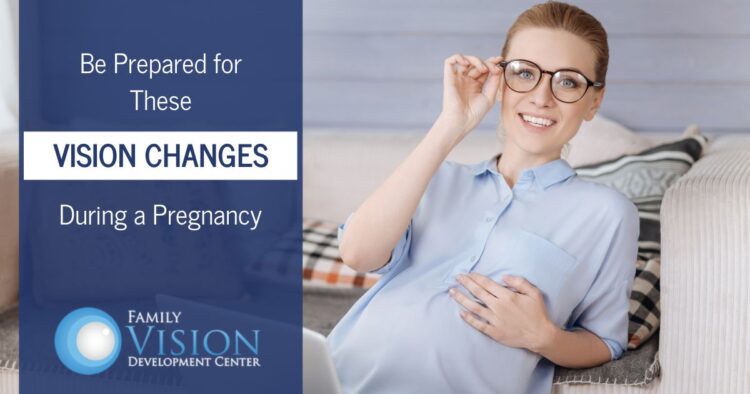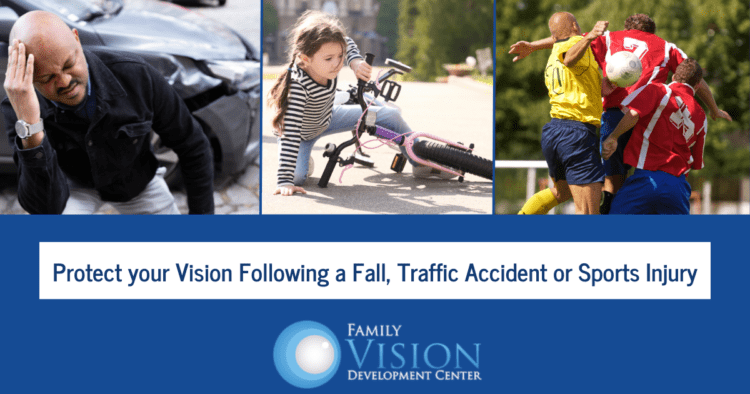

6 Surprising Vision Changes During Pregnancy
Pregnancy is a miraculous journey that brings about many changes in a woman’s body. One of the less-discussed yet significant changes that can occur during pregnancy is in a woman’s vision. Fluctuations in hormones, increased blood flow, and changes in fluid retention can all contribute to changes in vision. Here are a few changes to watch out for, along with helpful ways to manage them effectively.
Possible Vision Changes During Pregnancy
Blurry Vision: Many pregnant women report experiencing blurry vision, especially during the second and third trimesters. This can be attributed to hormonal changes affecting the shape of the cornea and the eye’s ability to focus properly.
Dry Eyes: Hormonal shifts can lead to reduced tear production, causing dry and irritated eyes. This condition can be uncomfortable and may result in temporary vision disturbances.
Increased Sensitivity to Light: Some pregnant women become more sensitive to bright lights, like sunlight or fluorescent lighting in office buildings, which can cause discomfort.
Changes in Prescription: Pregnant women who wear glasses or contact lenses might notice changes in their prescription. These changes are usually temporary and might revert to normal after pregnancy.
Puffy Eyelids: Puffiness around the eyes can be a common occurrence during pregnancy, and can be caused by water retention or hormone changes.
Flashing Light, Floaters or Spots: These symptoms might be a simple result of dehydration, or they can also be a sign of a dangerous condition known as pre-eclampsia when accompanied by other conditions such as high blood pressure or headaches. Contact your doctor right away if you experience any of these.
Why Do These Changes Occur?
Hormones play a crucial role in many common vision changes. The elevated levels of hormones during pregnancy, like estrogen and progesterone, influence the body’s fluid retention, affecting the eyes’ refractive properties. Additionally, changes in blood circulation can impact the pressure within the eyes, leading to shifts in vision. Other, more serious conditions can also be the cause of vision changes. Therefore, it is essential to pay attention, take the proper precautions and notify your doctor of any changes right away.
Managing Vision Changes During Pregnancy
Unfortunately, there is not much that can be done about changing hormones during a pregnancy, which are a major contributor to vision changes. However, there are some other ways to lessen the likelihood of these changes becoming too disruptive to daily life:
Regular Eye Exams: It’s essential for pregnant women to schedule regular eye exams with their optometrist. Monitoring vision changes and adjusting prescriptions, if necessary, can help ensure optimal eye health throughout a pregnancy.
Hydration: Drinking plenty of water can alleviate dry eyes and promote overall eye comfort. Adequate hydration supports tear production and reduces eye irritation.
Proper Lighting: Being mindful of lighting conditions is important, especially if you’re experiencing light sensitivity. Dimming harsh lights or wearing sunglasses when outdoors can ease discomfort.
Rest and Breaks: If you find yourself working on screens for extended periods, take regular breaks to rest your eyes. The 20-20-20 rule – looking at something 20 feet away for 20 seconds every 20 minutes – can help reduce eye strain.
Cold Compress: Many women find relief from swelling or puffiness around the eyes by placing a cold compress over closed eyes.
Pay Attention to Salt Intake: High sodium levels can cause water retention and increased swelling, which can contribute to those puffy eyelids.
Maintain Blood Sugar Levels: If you have gestational diabetes, closely monitoring and managing your blood sugar levels can help mitigate potential vision changes associated with this condition.
Avoid Rubbing Your Eyes: Rubbing your eyes can worsen dryness and irritation. Instead, use artificial tears to lubricate your eyes when needed.
Family Vision Development Center is Dedicated to your Eye Health
Vision changes during pregnancy can be unsettling, but they are typically temporary and often resolve after childbirth. Maintaining regular eye care, staying hydrated, and adopting healthy habits can go a long way in managing the vision changes that can occur during pregnancy. Remember, if you notice any severe or persistent vision disturbances, it’s crucial to consult your healthcare provider or visit us for a vision exam to rule out any underlying or serious issues. Contact us at 630-862-2020 to schedule an appointment or for any additional information during this exciting time.
Family Vision Development Center is a full-service vision center offering innovative vision therapy services, post-concussive vision rehabilitation, comprehensive vision exams for eyeglasses and contact lenses, management of ocular diseases including glaucoma, diabetes, macular degeneration and cataracts, and a state-of-the-art optical center offering the latest designs in eyewear.

